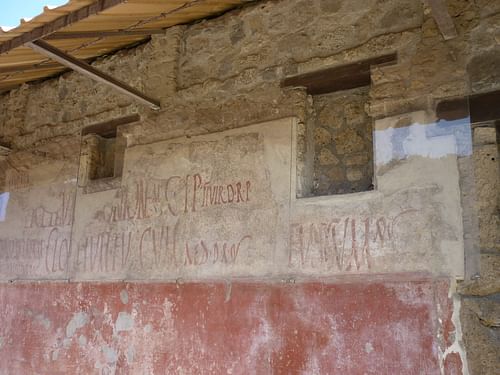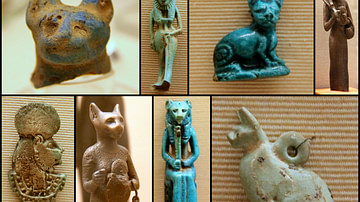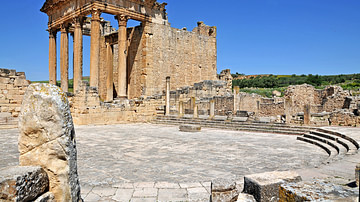WARNING: This article contains sexually explicit language that might not be appropriate for children or teenagers.
The Roman town of Pompeii was preserved in metres of volcanic material following the cataclysmic eruption of Mt. Vesuvius in 79 CE. Often, we may experience the ancient past only through the second-hand interpretations of historians and archaeologists but in the case of Pompeii we may read the very words of ordinary people themselves from the large number of graffiti, signs and electoral posters which have survived and which give a unique insight into their thoughts, hopes and desires. Below are some examples from this rich historical source [editorial notes are in parentheses].
On Gladiators
The girls' idol, Celadus the Thracian gladiator.
The gladiatorial troupe of Aulus Suettius Certus will fight at Pompeii on 31 May. There will be a hunt and awnings.
Come and drink, Oceanus. [on a tavern wall; Oceanus was a celebrated gladiator]
On Political Elections
The late drinkers ask you to elect Marcus Cerrinius Vatia eadile. Florus ad Fructus wrote this.
Marcus Cerrinius for aedile. Some people love him, some are loved by him, I can't stand him. - Who loathes, loves.
If integrity in life is thought to be of any use, this man, Lucretius Fronto is worthy of great honour.
Valens, you're sleeping; you're asleep and dreaming; wake up from your slumber and make Helvius Sabinus aedile.
If honour is bestowed on a man who lives modestly, a worthy honour should be given to this young man, Cuspius Pansa.
I ask that you elect Lucius Popidius Ampliatus and Lucius Vedius Nummianus aediles.
I beg you to elect Marcus Epidius Sabinus senior magistrate with judicial power, a most worthy young man. The venerable council is electing him. Good fortune to Clemens, venerable judge.
All the worshippers of Isis call for Cn. Helvius Sabinus as aedile.
For the health, return, and victory of Gaius Julius Phillipus, here, to his lares, Publius Cornelius Felix and Vitalis Cuspius make an offering.
All the deadbeats and Macerius ask for Vatia as aedile.
Epidius with his household want and support Cn. Helvius Sabinus as aedile.
On Love & Sex
Love dictates what I write and Cupid guides my hand: may I die if I wished to be a god without you.
Successus the weaver loves a barmaid named Iris who does not care about him. And the more he begs, the less she cares.
I ask you to become the support of my old age. If you don't believe I have money, don't love me. [Zosimus to Victoria]
I don't care about your pregnancy, Salvilla; I despise it.
If anyone's looking for tender embraces in this town, he should know that here all the girls are available.
Glyko licks cunts for two asses.
It is much better to fuck a hairy cunt than a smooth one: it both retains the warmth and stimulates the organ.
Satyrus, don't lick cunt inside the opening but outside the opening.
Here I have penetrated my lady's open buttocks; but it was vulgar of me to write these verses.
Romula sucks her man here and everywhere.
He who loves a dark-skinned girl burns on black coals; when I see a dark girl I gladly eat blackberries.
What the master orders is not shameful. [written by a slave]
[Secundus] buggered boys who wailed.
[Quintius] has here penetrated waggling buttocks and seen the pain it causes.
Let Damoetas surrender to me and he will be happier than Pasiphae.
Miscellaneous
The phoenix is lucky, may you be too.
Pleasant it is over the great sea. [paraphrase of a line from the poet Lucretius]
A benevolent god lives here. [on a house wall]
If you're going to fight, get out! [on a tavern wall]
You deserve to pay for all your tricks, innkeeper. Selling us water and keeping the good wine for yourself!
Let anyone who invites me to dinner prosper!
I admire you, wall, for not having collapsed at having to carry the tedious scribblings of so many writers.






